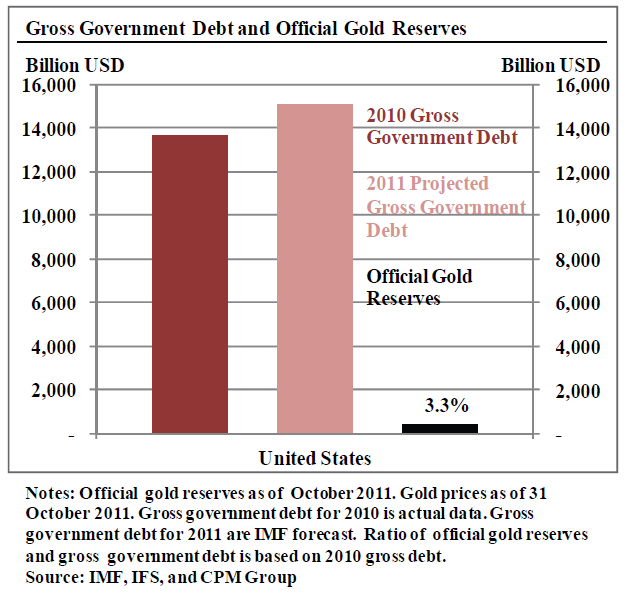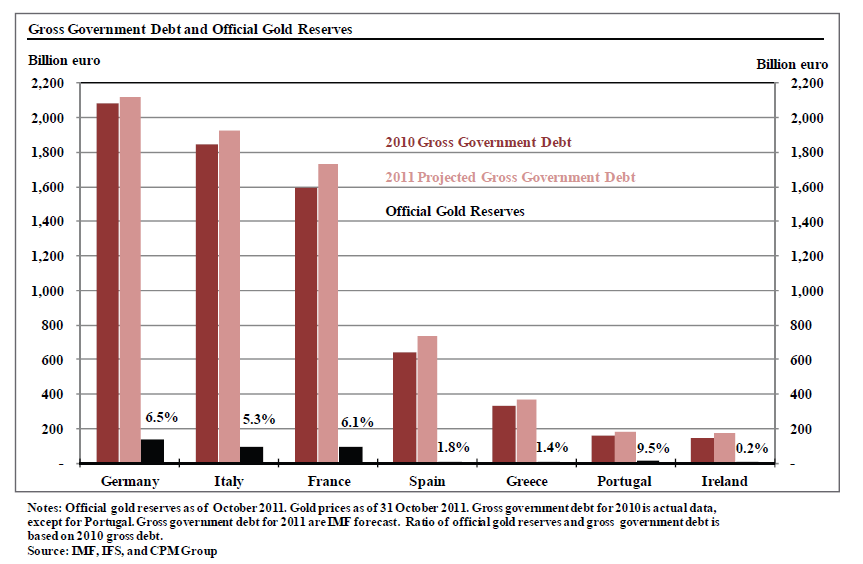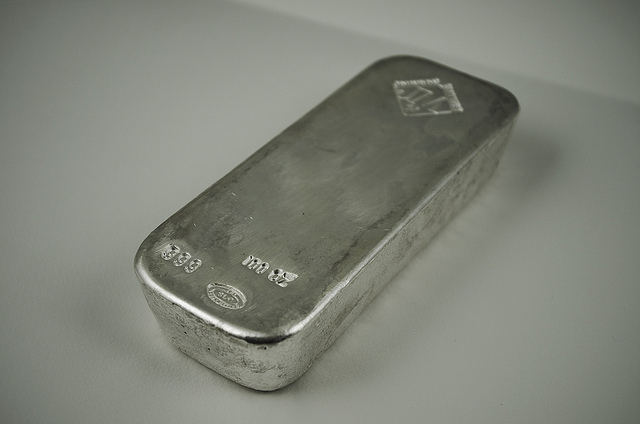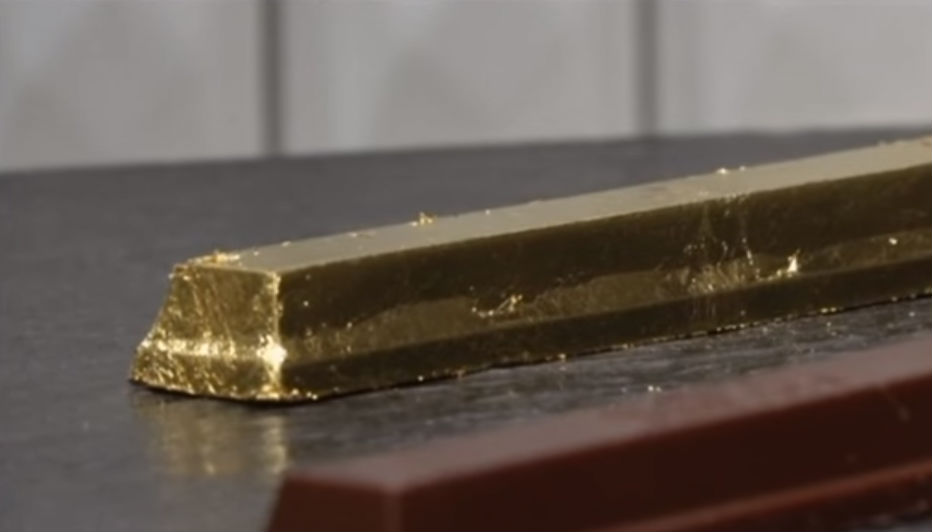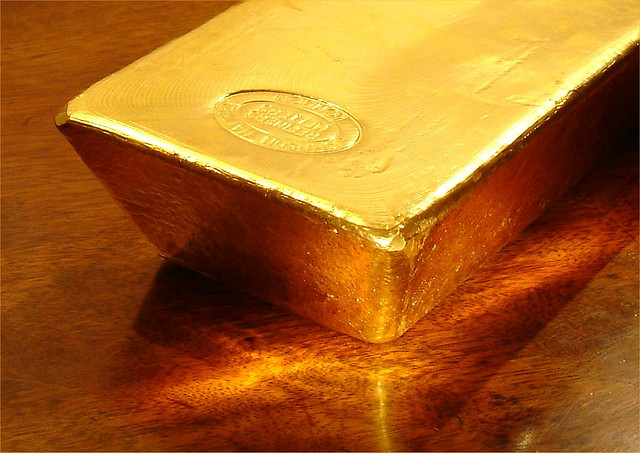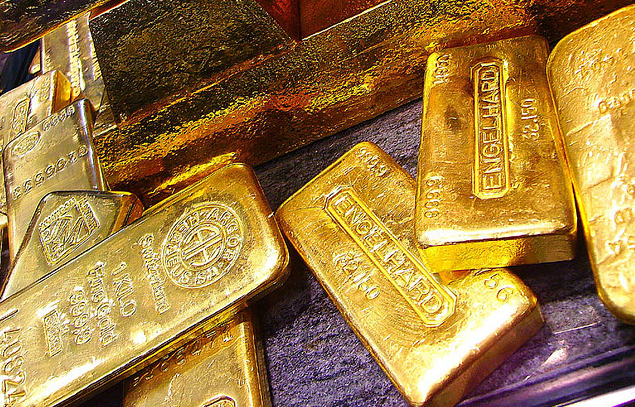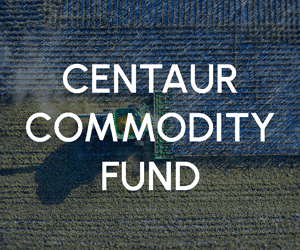Nyheter
The potential effects on the gold market of a Greek withdrawal from the ECB
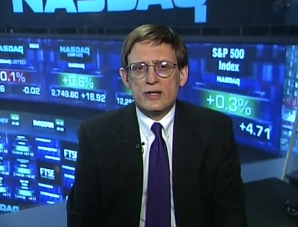
 The new year has dawned with continued market speculation about what the gold market implications would be if Greece were to withdraw from the European Central Bank (ECB) system and sever its use of the euro in favor of a new drachma. CPM Group views such a development highly unlikely, because it would be so utterly destructive in economic, financial, and political terms. Our opinions – and those of the seemingly like-minded vast majority of financial market participants – notwithstanding, the speculation continues. Since several clients have requested insights from CPM Group concerning the potential impact on gold of such a withdrawal by Greece or other member governments from the ECB and euro, CPM Group is issuing this Market Commentary on the subject.
The new year has dawned with continued market speculation about what the gold market implications would be if Greece were to withdraw from the European Central Bank (ECB) system and sever its use of the euro in favor of a new drachma. CPM Group views such a development highly unlikely, because it would be so utterly destructive in economic, financial, and political terms. Our opinions – and those of the seemingly like-minded vast majority of financial market participants – notwithstanding, the speculation continues. Since several clients have requested insights from CPM Group concerning the potential impact on gold of such a withdrawal by Greece or other member governments from the ECB and euro, CPM Group is issuing this Market Commentary on the subject.
Much of the speculation has focused on the potential that as part of a Greek withdrawal from the euro the Greek government might decide to sell gold from its monetary reserves. Some comments suggest that the Greek government, or some other government pulling out of the ECB, could be compelled to sell its gold reserves. Another strain of commentary suggests that the ECB might be required or forced to sell gold in such a situation.
First, there are no legal or contractual mechanisms compelling such a sale by the Greek central bank, the ECB, or any other central bank. The gold these central banks hold is in no way pledged against any of the sovereign debt of their respective governments. So, in the most superficial way, a withdrawal by Greece or another member would not necessarily or likely precipitate a government sale of gold that could have a direct negative impact on gold prices.
More important, the consequences for gold of the macroeconomic and financial fall-out from such a withdrawal would have a much more dynamic and forceful effect on the gold market and gold prices than any gold-focused actions by the Greek central bank or ECB.
If Greece were to withdraw from the euro system, its gold holdings would be the least of the issues to watch. Greece would immediately move into bankruptcy as a government, defaulting on all of its loans. Greece only holds 3.6 million ounces of gold worth $5.9 billion at today’s price.
Greece’s government debt is around $485 billion, so only around 1.4% of it could be covered by selling gold – assuming the price would not plunge on the event.
In other words: Greece will be highly unlikely to sell any of its gold to pay its debt. It would seek to hold on to its capital stock. As discussed in a Market Commentary issued 6 December 2011 on issues related to the concept, that Europe and the United States could use their gold reserves to pay down their debt: for all of these countries the value of their gold reserves is a small fraction of what they owe. Selling their gold from their capital accounts would do nothing to fix the fiscal deficit problems that are the basis for the rising debt. If they sold their gold they would throw away some of their capital stock and leave themselves in much worse financial conditions. Also, as mentioned above, there are no laws, regulations, rules, policies, or anything else that would say Greece or any other country would need to or could be compelled to sell its gold or lease it.
Meanwhile, if Greece pulled out of the euro system, it could face dissolution, while Europe could face a massive economic depression worse than the 1930s and a series of political revolutions. (All of which is why one should not expect the euro and ECB to collapse: The costs are too high to allow and governments will do whatever is necessary to protect Europe, and its jobs, against such an inevitability.) So, again, the effects of a Greek withdrawal from the euro system on gold primarily would be felt much more through its effects at the monetary and macroeconomic level, and not related to its gold holdings.
The ECB would not need to sell its gold to recapitalize. It would have to return a bit to Greece, which has deposited some gold with the ECB as part of its contribution, but the amount would be small. The gold held by the ECB is considered Tier 1 capital. It would rise in value. So, the ECB would want to hold on to its gold and not sell it, as it would help it immensely.
Another question related to whether the ECB could violate the European Central Bank Gold Agreement (CBGA), which includes a guideline for how much gold signatory central banks will sell in any given year. The European CBGA is non-binding. Central banks that are party to the CBGA can do whatever they want with their gold, at the end of the day, with total disregard for this agreement.
This Market Commentary is based in part on material contained in CPM Group’s Gold Long-Term Outlook, released January 2012. The two charts on this page are taken from that report, and were used in Market Commentary 2011-3, released 6 December 2011.
[hr]
About CPM Group
CPM Group is a commodities market research, consulting, asset management, and investment-banking firm.
CPM focuses on various commodities markets from precious metals to tropical soft commodities. In its twenty years as an independent company, CPM has consistently delivered unique, market-leading research and services to clients ranging from individual investors to leading international organizations worldwide.
Nyheter
Hur säkrar vi Sveriges tillgång till kritiska metaller och mineral i en ny geopolitisk verklighet?

När världsläget förändras ställs Europas beroende av metaller och mineral på sin spets. Geopolitiska spänningar, handelskonflikter och ett mer oförutsägbart USA gör att vi inte längre kan ta gamla allianser för givna. Samtidigt kontrolleras en stor del av de kritiska råvarorna vi är beroende av av andra makter – inte minst Kina. Vad händer med Sveriges industriella förmåga i ett läge där importen stryps? Hur påverkas försvarsindustrin av Kinas exportrestriktioner? Är EU:s nya råvarupolitik tillräcklig för att minska sårbarheten – eller krävs ytterligare statliga insatser och beredskapslagring? Svemin anordnade den 25 juni ett seminarium som bestod av bestod av deltagare från myndigheter, politik och industri. Man diskuterar Sveriges och EU:s strategiska vägval i en ny global verklighet – och vad som krävs för att säkra tillgången till metaller när vi behöver dem som mest.
Nyheter
Lundin Mining ska bli en av de tio största kopparproducenterna i världen
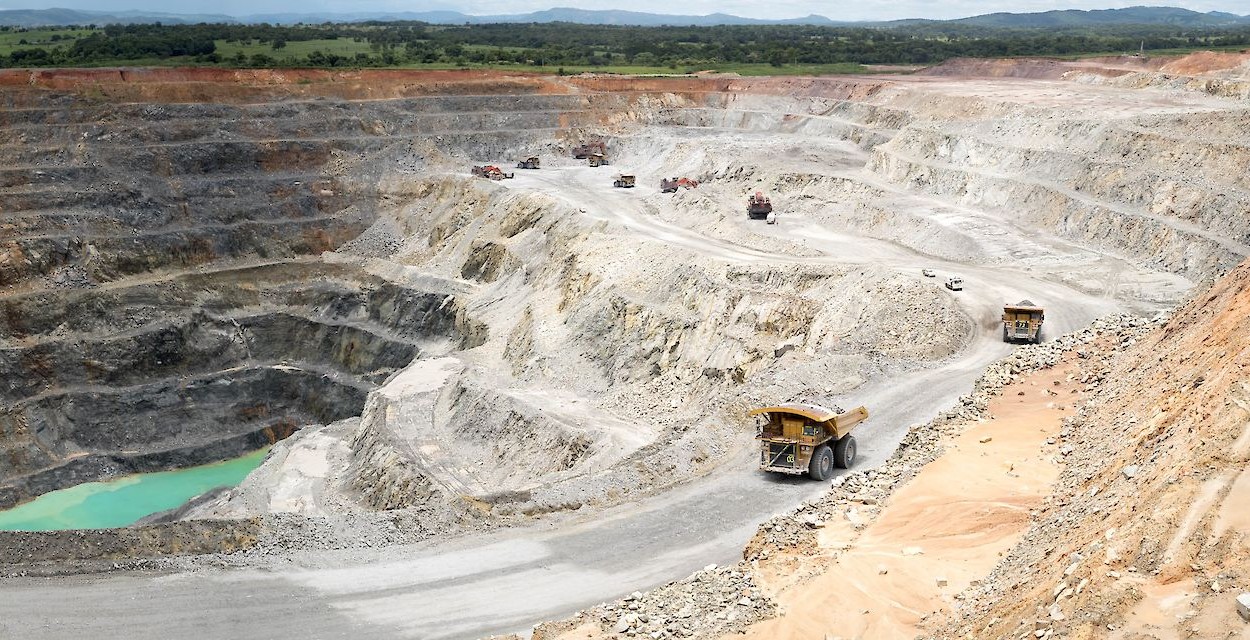
Lundin Mining är bolaget i Lundin-sfären som satsar stort på Vicuña-projektet i Argentina. Det ska lyfta Lundin Mining till att bli en av de tio största kopparproducenterna i världen skriver Affärsvärlden och upprepar sin köprekommendation för aktien.
”Även om en framgång inte är på förhand given tror vi att Vicuña har goda chanser att bli bra. Vi förnyar vårt köpråd för Lundin Mining”
Enligt Lundin Minings ledning kommer man att klara att finansiera sin del av investeringarna i Vicuña genom det löpande kassaflödet som man förväntar sig ska bli omkring 5 miljarder dollar kommande fem år i kombination med lån.
Nyheter
Sommarvädret styr elpriset i Sverige

Många verksamheter tar nu ett sommaruppehåll och ute värmer solen, det är gott om vatten och vinden blåser. Lägre efterfrågan på el och goda förutsättningar för kraftproduktionen höll ner elpriserna under juni.

Elpriset på den nordiska elbörsen Nord Pool (utan påslag och exklusive moms) i elområde 1 och 2 (Norra Sverige) blev för juni 3,05 respektive 4,99 öre/kWh, vilket är rekordlågt och de lägsta på minst 25 år.
– Elpriset påverkas av en rad faktorer men vädret väger tyngst. På sommaren minskar efterfrågan på el och många verksamheter har ett uppehåll. Detta tillsammans med goda förutsättningar inom kraftproduktionen påverkar elpriset nedåt, säger Jonas Stenbeck, privatkundschef Vattenfall Försäljning Norden.
Den hydrologiska balansen, måttet för att uppskatta hur mycket vatten som finns lagrat ovanför kraftstationerna, ligger över normal nivå, särskilt i norra Skandinavien. Tillgängligheten för kärnkraften i Norden är just nu 82 procent av installerad effekt.
– De goda nordiska produktionsförutsättningarna gör elpriserna mindre känsliga för förändringar i omvärlden, säger Jonas Stenbeck.
Priserna på olja och gas kan dock ändras snabbt med anledning av en turbulent omvärld. På kontinenten har efterfrågan på gas sjunkit och nytt solkraftsrekord för Tyskland sattes på midsommarafton med en produktion på 52,5 GW.
– Många av de goda elvanor vi skaffade oss under elpriskrisen verkar leva kvar och gör nytta även på sommaren. De svenska hushållens elförbrukning under 2024 var faktiskt den lägsta detta millenium, säger Jonas Stenbeck.
| Medelspotpris | Juni 2024 | Juni 2025 |
| Elområde 1, Norra Sverige | 24,04 öre/kWh | 3,05 öre/kWh |
| Elområde 2, Norra Mellansverige | 24,04 öre/kWh | 4,99 öre/kWh |
| Elområde 3, Södra Mellansverige | 27,27 öre/kWh | 22,79 öre/kWh |
| Elområde 4, Södra Sverige | 62,70 öre/kWh | 40,70 öre/kWh |
-

 Nyheter4 veckor sedan
Nyheter4 veckor sedanStor uppsida i Lappland Guldprospekterings aktie enligt analys
-

 Nyheter4 veckor sedan
Nyheter4 veckor sedanSilverpriset släpar efter guldets utveckling, har mer uppsida
-
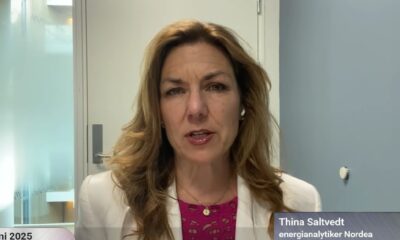
 Nyheter3 veckor sedan
Nyheter3 veckor sedanUppgången i oljepriset planade ut under helgen
-

 Nyheter3 veckor sedan
Nyheter3 veckor sedanLåga elpriser i sommar – men mellersta Sverige får en ökning
-

 Nyheter2 veckor sedan
Nyheter2 veckor sedanMahvie Minerals växlar spår – satsar fullt ut på guld
-
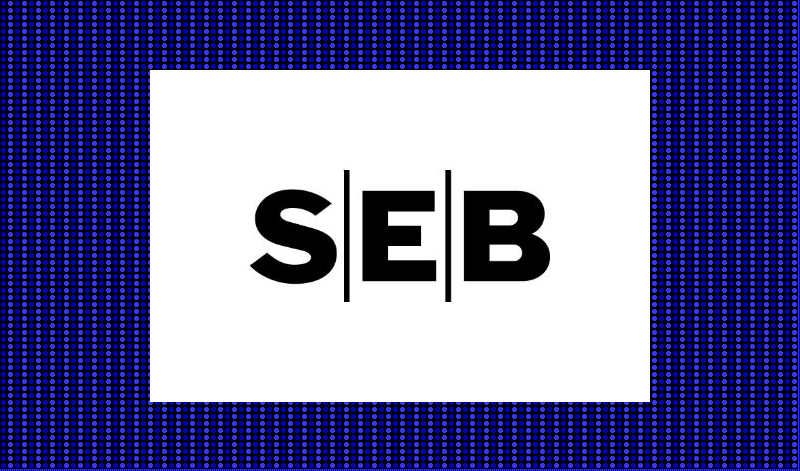
 Analys3 veckor sedan
Analys3 veckor sedanVery relaxed at USD 75/b. Risk barometer will likely fluctuate to higher levels with Brent into the 80ies or higher coming 2-3 weeks
-

 Nyheter1 vecka sedan
Nyheter1 vecka sedanOljan, guldet och marknadens oroande tystnad
-

 Nyheter1 vecka sedan
Nyheter1 vecka sedanJonas Lindvall är tillbaka med ett nytt oljebolag, Perthro, som ska börsnoteras


